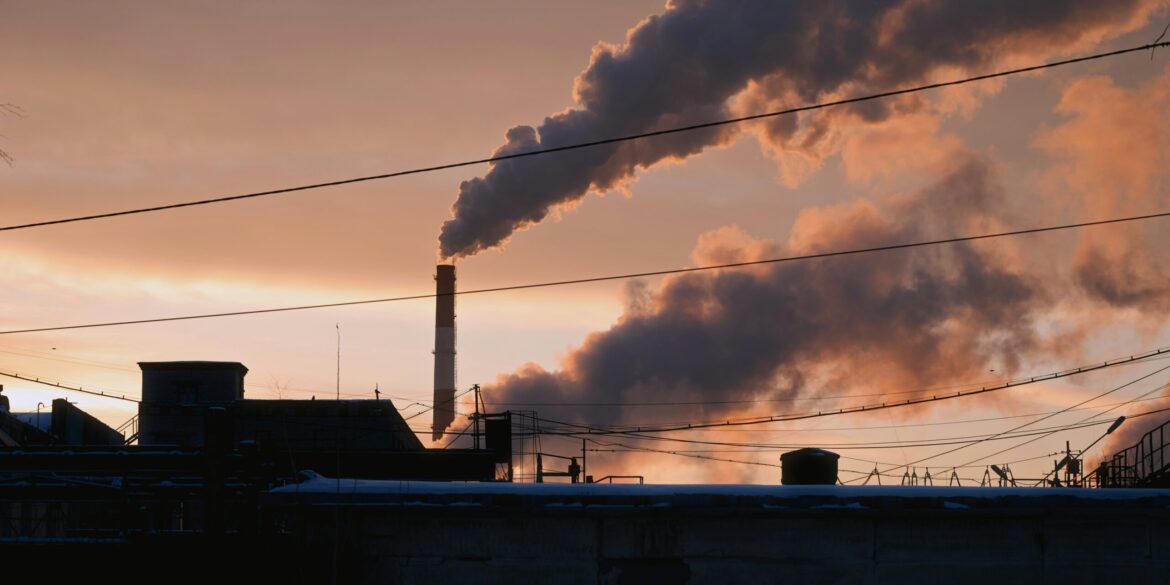Greenhouse gas emissions in the United States have increased by approximately 1.4% during the first half of 2025, according to a new report released by the Rhodium Group. The rise marks a reversal in what had been a downward trend in recent years and raises serious concerns about the country’s ability to meet its climate commitments. The uptick in emissions has been linked to significant policy rollbacks under the current administration, which have weakened the federal government’s support for renewable energy and scaled back environmental regulations.
The report highlights that the U.S. is now projected to reduce its emissions by only 26% to 35% by the year 2035 compared to 2005 levels. This is a sharp decline from earlier projections, which anticipated a 38% to 56% reduction if more ambitious climate policies had remained in place. Experts warn that this reduced pace of decarbonization could severely hinder global efforts to limit temperature rises and maintain the trajectory needed to meet the Paris Agreement goals.
The emissions increase is attributed to a range of policy decisions that have shifted the nation’s energy landscape back toward fossil fuel dependence. Among the most consequential actions were the rollback of clean energy tax incentives, the relaxation of emissions standards for power plants, and a resurgence in oil and gas leasing on federal lands. These decisions have collectively diminished investment confidence in the renewable energy sector and delayed or derailed numerous clean energy projects across the country.
Read Also: https://democratdigest.com/how-long-will-trump-be-able-to-deny-reality-with-his-energy-policy/
In states like Texas and Ohio, large-scale wind and solar projects have been delayed due to uncertainty over federal subsidies and shifting regulatory requirements. Meanwhile, several planned battery manufacturing plants and clean energy infrastructure projects have either been put on indefinite hold or canceled altogether. Offshore wind development, once a centerpiece of federal clean energy strategy, has been particularly hard-hit, with key developers citing financial and regulatory challenges in pausing their projects.
The broader economic environment has also played a role. Rising material costs, labor shortages, and global supply chain disruptions have complicated the transition to clean energy, but analysts argue that strong federal policy could have mitigated many of these challenges. Instead, the current approach has amplified uncertainty, driving investment back toward more established, carbon-intensive energy sources like natural gas and coal.
Environmental scientists and policy analysts are sounding the alarm over the potential long-term impact of these changes. The Rhodium Group’s updated projections suggest that without a sharp course correction, the U.S. could find itself significantly behind on its climate targets by the mid-2030s. Even more concerning, under high-emission scenarios, the country could experience an overall increase in greenhouse gas output in the decades that follow.
This setback also has international implications. The United States, as one of the world’s largest emitters and a central player in global climate diplomacy, plays a critical role in setting the tone for international cooperation. The current trajectory may weaken the country’s negotiating position ahead of key climate summits, and could reduce trust among allies who rely on U.S. leadership to help drive global climate action.
Despite these challenges, some state governments and private sector leaders continue to push forward with climate initiatives at the local and regional levels. States like California and New York are maintaining their ambitious clean energy goals, and a number of corporations remain committed to net-zero emissions targets. However, without cohesive federal support, these efforts may not be sufficient to counterbalance the broader national trend.
The report concludes with a call for urgent federal action to reinstate and strengthen clean energy policies, restore regulatory frameworks that curb pollution, and provide long-term certainty to industries investing in the energy transition. Time, it warns, is a critical factor. Every year of delay in curbing emissions increases the difficulty and cost of meeting long-term climate goals.
As the global climate crisis accelerates, the decisions made in Washington today will reverberate far beyond U.S. borders. For climate advocates and international observers alike, the latest data serves as a stark reminder of the consequences of political reversals in a world that can ill afford to slow down its response to environmental change.

